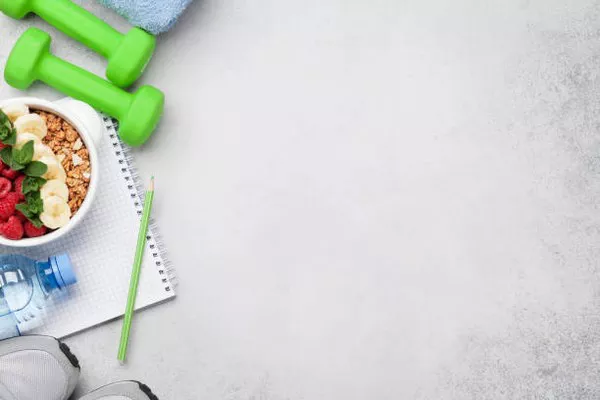Losing weight quickly without relying on exercise or pills might seem challenging, but there are several effective strategies you can employ. This article provides a comprehensive guide to achieving weight loss through dietary adjustments, lifestyle changes, and mindful practices. Each section offers actionable advice to help you on your journey to a healthier weight.
Understanding the Basics of Weight Loss
How Weight Loss Works
Weight loss fundamentally relies on creating a calorie deficit, where you consume fewer calories than you expend. While exercise helps to burn calories, you can achieve weight loss through other means.
Importance of a Balanced Approach
A balanced approach to weight loss involves a combination of dietary changes, mindful eating, and lifestyle modifications. This holistic strategy can lead to sustainable weight loss without the need for extreme measures like pills or intense workouts.
Dietary Adjustments for Weight Loss
1. Focus on Whole Foods
Whole Foods: Incorporate more fruits, vegetables, whole grains, lean proteins, and healthy fats into your diet. Whole foods are nutrient-dense and often lower in calories compared to processed foods.
Examples:
- Fruits: Apples, berries, oranges
- Vegetables: Leafy greens, broccoli, carrots
- Whole Grains: Brown rice, quinoa, oats
- Lean Proteins: Chicken breast, tofu, legumes
- Healthy Fats: Avocado, nuts, olive oil
2. Reduce Caloric Intake
Caloric Intake: Monitor and reduce your daily calorie consumption. Use a calorie-tracking app or food diary to stay aware of your intake.
Tips:
- Portion Control: Eat smaller portions to control calorie intake.
- Avoid Empty Calories: Limit sugary snacks, sugary drinks, and high-fat foods.
3. Increase Protein Intake
Protein: Protein helps you feel full longer and can aid in reducing overall calorie intake.
Sources:
- Animal Proteins: Chicken, fish, eggs
- Plant Proteins: Beans, lentils, tofu
4. Choose Low-Glycemic Foods
Low-Glycemic Foods: These foods have a lower impact on blood sugar levels, which can help control hunger and cravings.
Examples:
- Vegetables: Spinach, kale
- Fruits: Apples, pears
- Whole Grains: Barley, oats
5. Drink Plenty of Water
Hydration: Drinking water can aid in weight loss by increasing feelings of fullness and reducing calorie intake.
Tips:
- Water Before Meals: Drink a glass of water before meals to help control portion sizes.
- Stay Hydrated: Aim to drink at least 8 cups of water a day.
6. Limit Processed Foods
Processed Foods: These often contain added sugars, unhealthy fats, and high calories. Reducing their intake can help manage weight.
Tips:
- Read Labels: Check ingredient lists and nutritional information.
- Cook at Home: Preparing meals at home allows for better control over ingredients.
See Also: How To Lose Weight In Quarantine Exercise
Lifestyle Changes for Effective Weight Loss
1. Get Adequate Sleep
Sleep and Weight Loss: Lack of sleep can disrupt hormones that regulate hunger, leading to increased appetite and weight gain.
Tips:
- Sleep Schedule: Maintain a consistent sleep schedule.
- Quality Sleep: Aim for 7-9 hours of quality sleep each night.
2. Practice Mindful Eating
Mindful Eating: Being present during meals and paying attention to hunger and fullness cues can prevent overeating.
Techniques:
- Eat Slowly: Chew food thoroughly and savor each bite.
- Listen to Your Body: Eat when hungry and stop when full.
3. Manage Stress
Stress and Weight Loss: Chronic stress can lead to emotional eating and weight gain. Managing stress is crucial for maintaining a healthy weight.
Stress-Relief Techniques:
- Meditation: Practice mindfulness or meditation regularly.
- Relaxation: Engage in hobbies and activities that promote relaxation.
4. Establish a Healthy Routine
Healthy Routine: Consistency in daily habits can contribute to weight loss and overall well-being.
Suggestions:
- Regular Meal Times: Eat meals at consistent times each day.
- Balanced Meals: Incorporate a variety of nutrients into each meal.
Additional Tips for Sustainable Weight Loss
1. Set Realistic Goals
Realistic Goals: Set achievable and measurable weight loss goals to stay motivated and track progress.
Examples:
- Short-Term Goals: Lose 1-2 pounds per week.
- Long-Term Goals: Aim for a sustainable weight loss of 5-10% of your body weight.
2. Monitor Your Progress
Progress Monitoring: Keep track of your weight loss progress through regular weigh-ins and adjustments to your plan as needed.
Methods:
- Weight Tracking: Use a scale to monitor weight changes.
- Journal: Maintain a food and activity journal to identify patterns.
3. Seek Support
Support System: Having a support system can enhance motivation and accountability.
Sources:
- Friends and Family: Share your goals with loved ones.
- Online Communities: Join online forums or social media groups focused on weight loss.
Conclusion
Losing weight quickly without exercise or pills is achievable with the right approach. By focusing on dietary adjustments, making lifestyle changes, and adopting mindful practices, you can achieve your weight loss goals in a sustainable and healthy manner. Remember, the key to success is consistency and patience. Implement these strategies gradually, and you’ll be on your way to a healthier weight.


